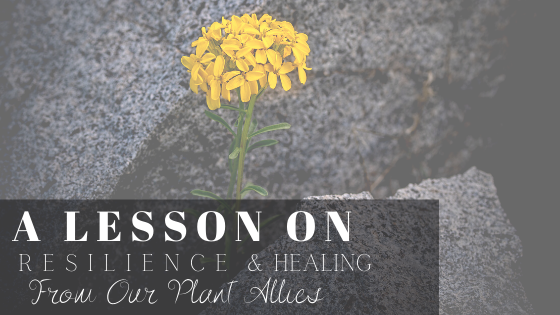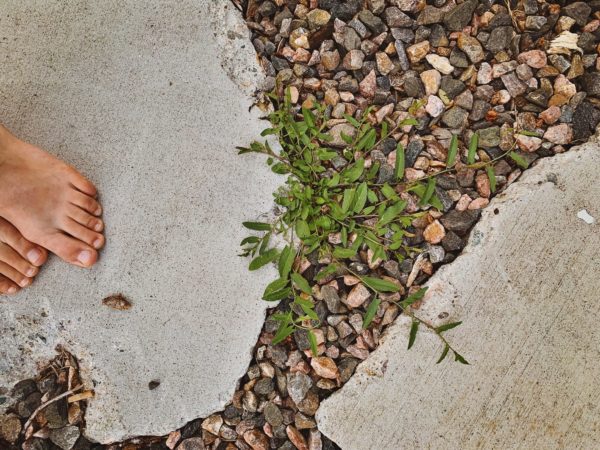 The world has been shaken. We acknowledge and recognize that there is not a single person who has not been impacted by this event. To those who have lost loved ones, we mourn with you, and send you comfort. To those who are picking up the pieces, we grieve with you, and send you peace. To those who are confused and afraid, we embrace you, and send you warm, guiding light. To those who feel darkness, we send you love. But please know that, We stand by you. We are here for you. The sun still continues to shine, and our rivers continue to flow. We can still expect rain to fall and flowers to bloom. Just as the sun sets, this too, will pass to bring forth a brighter new day. And we will get through this, together.
The world has been shaken. We acknowledge and recognize that there is not a single person who has not been impacted by this event. To those who have lost loved ones, we mourn with you, and send you comfort. To those who are picking up the pieces, we grieve with you, and send you peace. To those who are confused and afraid, we embrace you, and send you warm, guiding light. To those who feel darkness, we send you love. But please know that, We stand by you. We are here for you. The sun still continues to shine, and our rivers continue to flow. We can still expect rain to fall and flowers to bloom. Just as the sun sets, this too, will pass to bring forth a brighter new day. And we will get through this, together.
On Resilience
Defined as the ability to be prepared for, adapt to, and overcome adversity, resilience should be thought of as an active term, versus a passive one. A common mistake is to think of resilience as something that is achieved all at once, or perhaps something one is innately born with. However, this is not necessarily the case. To become resilient is a continuous journey. As there is impermanence in the world, we too must continue to overcome, grow, adapt, and change, along with our environment. When one thinks of resilience, it is likely a very familiar symbol or image comes to mind. While it has become a bit of a cliche, the image of a weed rising from gravel, or from the smallest cracks in the sidewalk still proves to be a powerful message, a reminder of the resilience of life. Despite all odds, the weed still pushes on and chooses to grow, adapting to the environment it has found itself in along the way. Us herbalists can find an even deeper message in the weed’s strength. A weed continues pressing on in a world that does not necessarily see it with a sense of gratitude. It is highly likely that this weed, like many plants that are defined as weeds, is packed with nutrients and healing properties. The world may have defined this plant as serving a different purpose, but this does not prevent the weed from continuing to share its presence with us, from sharing its important wisdom and being a beacon of hope. While we fully acknowledge that our Golden Poppy Family is still facing a lot of uncertainty during these times, we cannot stress enough that you do not have to heal alone. Matter of factly, we so very warmly invite you to join us and embody the resilience and wisdom of our plant allies that remind us of the resilience we all have within us.Lessons we can learn from plants in an uncertain future:
Find groundedness.
In an environment that does not feel stable, there are no greater teachers than those of plants. Take this time to remember that you too have roots. It is these vital systems that allow a plant to find the balance and stability it needs to thrive. Identify what it is that pulls you out of the chaos and into the present. Perhaps that is a grounded meditation practice, journaling, talking with someone you trust, or a simple breathing exercise.Focus on what you can control.
We may not know what the weather will look like tomorrow. We may not be able to control the actions of our neighbors. But we can control how we chose to interact with, as well as react to, our environment. We can choose what we consume, whether nutritionally, or perhaps by means of media stimulation. We can choose how much to unfurl our leaves, or what we allow ourselves to absorb from our environment. You have that power and permission to do what is best for you and your wellbeing. It is important to stay informed, but also know that it is perfectly okay to shut down the news notifications on your phone from time to time.Remember your support system.
Something truly magical about plants is the fact they have such a robust sense of community. From the smallest mushroom to the largest trees, they not only support one another but communicate. Sometimes in a world where we need healing, the best form is the connection of others. Reach out to those who support you and care about you, and allow them to send you the care and love you need right now, just as the mighty trees of the forest do for the smallest sapling. Also, consider that giving to others who are also in need of healing (if your energy is in a place that allows) can also help your own journey.Adapt.
Plants understand that the world we live in is not always a perfect environment. It is a constant ebb and flow, moving between abundance and adversity. Resistance to change does not allow us to grow and thrive. Express gratitude during times of abundance, allow yourself time to grieve during times of adversity but know that if we learn to adapt, we will always continue to thrive and persevere.The following herbs have incredible properties to alleviate and accompany us in our grieving, regrouping, and balancing:
Skullcap. On those nights that you are feeling restless or your mind is racing, this herb can greatly guide us to deep, restful sleep. Literally symbolizing a “cap” for your skull, this herb works as a mild sedative and helps to promote relaxation and bring a sense of calm. (Buy skullcap here. Read our monograph on skullcap here) Hawthorn. A herb greatly embraced by the Western world as helping to support our cardiovascular system, and tonify the muscles of the heart, there is no doubt that this herb also balances the wellbeing of our emotions. Additionally, as beautifully described by herbalist Elisha Storey, this herb can help us move through grief or instability, as it has been “found to strengthen [one’s] assurance of living life when [one’s life] feels vulnerable.” (Buy Hawthorn berries here and Hawthorn flowers here. Read our monograph on Hawthorn here) Ashwagandha. This herb is an adaptogen, which means it is a beautiful example of what it means to have adaptive energy. This herb gives us strength and energy to adapt to whatever is currently being experienced in our environment, including instability, stress, or significant change. (Buy Ashwagandha here. Read our monograph here) Elderberries. Ah sweet elderberries. These tiny berries are so small, but so powerful. In a world impacted by a pandemic, these can help us to strengthen our immune system. A natural anti-viral, anti-bacterial, and overall immune system booster, this herb can be the extra tool in our toolbelt as we move into the future. (Buy elderberries here. Read our monograph on the berries here) Reishi Mushrooms. One of the most ancient adaptogens, reishi is known to help support the immune system, but also our nervous systems and our brain function. (Buy reishi here. Read our monograph here) Oat Straw. A preeminent adaptogen, oat straw, and milky oat tincture (as well as oatmeal for eating) has a profound effect on the nervous system. When our nerves are feeling frayed like electrical wires exposed to too much stimulation, oats go through and help to smooth them back into place, leaving behind a sense of calm. (Buy oat straw here. Read our monograph here and here)There are so many other wonderful plant allies you could turn to during this time, in fact, we are offering our first-ever virtual class on this topic later in the month: Herbs & Holistic Care in Times of Stress and Change, and we invite you to join us to dig in deeper.
And if you need more support, we are offering virtual one-on-one consultations if you would like additional guidance around what remedies you may need.
We want to conclude by expressing that we are so grateful for this family. We will stand by you as you have stood by us, and will support you and send you the love that we experienced through this rocky period in our lives. We are grateful to be able to be a resource for your health and healing, and warmly welcome you to reach out for any needs you may have. We know this will come to pass, because we know the strength of this community. Thank you for continuing to inspire us.Sources:
- Storey, Elisha. “Herbs to Support the Heart in Times of Grief.” The School of Evolutionary Herbalism. 13 July 2018. https://www.evolutionaryherbalism.com/2018/07/13/herbs-for-grief
- Tim. “Herbs to Ease Heartache and Beat the Blues.” Mountain Rose Herbs. 2 January 2020. https://blog.mountainroseherbs.com/herbs-heartbreak
- Rana, Sarika. “5 Ayurvedic Herbs You Can Use to Fight Stress and Calm Your Mind.” NDTV Food. 28 August 2017. https://food.ndtv.com/health/5-ayurvedic-herbs-you-can-use-to-fight-stress-and-calm-your-mind-1742290




